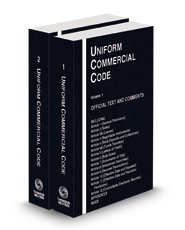
50 state surveys are tools whereby an expert has already compiled the law from every state on a specific topic – or through which the user can customize their own spreadsheet. If you can find one on your topic, they can save you an inordinate amount of time.
On Westlaw, search across jurisdictions for surveys on hundreds of topics. Just start typing 50 state survey… and select the suggested source from the dropdown list. Select statute or regulation survey. On Practical Law, "Quick Compare," is a customizable statutory comparison tool, select states and topics of interest. Find "Quick Compare" in the right-side column in Practical Law.
Search across jurisdictions to find laws and regulations. On Lexis+, start typing 50-state ... in search bar. See also Practice Guidance for the State Law Comparison Tool.
Bloomberg Law also offers customizable State Law chart builders on many topics. Go to Practitioner Tools, then select Chart Builders.
Hein Online offers two statutory comparison resources: the National Survey of State Laws provides state-by-state comparisons of current state laws (in print in the law library, Call Number: Ref. KF 386 .N38 2019) on about 57 selected topics and the Subject Compilation of State Laws (HeinOnline sign-in required) indexes articles, books, etc. that contain comparisons of state laws. The latter source is especially useful if you can’t find a 50-state survey that’s already been compiled.
Contract Law adheres to the laws and legal principles of the jurisdiction where they are formed and enforced. The specific laws governing contracts may include:
Common Law: Contract law principles developed through judicial decisions and precedents. Common law countries, such as the United States, United Kingdom, Canada, Australia, and others, rely on these principles, including offer, acceptance, consideration, and interpretation.
Statutory Law: Contract laws can be codified in statutes enacted by legislatures. Each jurisdiction may have specific laws governing contracts, such as the Uniform Commercial Code (UCC) in the United States or the Sale of Goods Act in the United Kingdom. These laws address various aspects of contract formation, performance, and remedies.
International Conventions and Treaties: Some contracts may be subject to international conventions or treaties. For instance, the United Nations Convention on Contracts for the International Sale of Goods (CISG) establishes uniform rules for international sales contracts.
It's important to note that contract law can vary between jurisdictions, and understanding the specific laws applicable to a contract is crucial. Practitioners often consult a combination of primary and secondary sources, and legal commentary to gain a comprehensive understanding of Contract Law.
 Uniform commercial code : official text and comments / the American Law Institute [and] National Conference of Commissioners on Uniform State Laws
Uniform commercial code : official text and comments / the American Law Institute [and] National Conference of Commissioners on Uniform State Laws